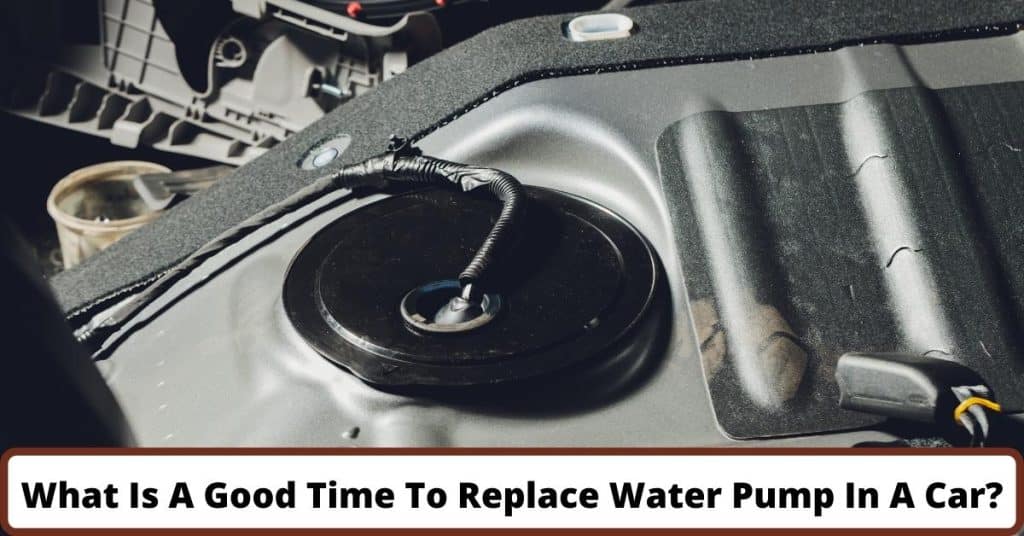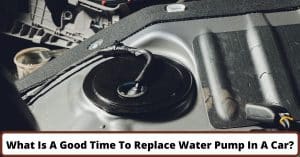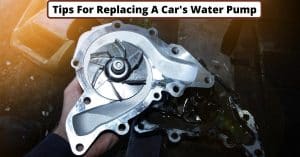Things to Consider Before Engine Replacement
1. Can You Fix Your Car Problem Yourself?
Labour can be more costly than parts when you are fixing a car by yourself. If you’re not qualified to fix your own car, it’s best to consult with professionals from the start. It may be time to replace the hoses and water pump and do other key maintenance at this point in order to avoid future issues with the engine.
2. Ask Your Mechanic If They Have Any Other Options for Salvaged Parts That Could Be Refurbished
3. Discuss Possible Hoses Replacements As Part of the Service Price
4. It May Be Time To Replace Hoses and Do Other Key Maintenance at This Point In Order To Avoid Future Issues With The Engine
5. Ask Your Mechanic Whether They Can Create a Packaged Price to Save You Money in the Long Term
2. Consider the Cost
The engine replacement costs vary based on a number of factors, including the car’s age and performance. If your vehicle is an older model, it’s likely that you’ll pay more for a quality engine than the amount you might warrant if you were to sell it outright.
Engine replacement shouldn’t be done unless it’s worth the cost. Consider how old the vehicle is and what would be the costs to replace it with a new engine before deciding if an engine upgrade is worth it for that car. If a car is worth more than $5000, it might be cheaper to source a new engine rather than buy a whole new car. A newer car may still be worth investing in if the engine is still working well
3. Your Car Is On Its’ Way Out
The best option is for someone with a car that is on its way out not to spend money repairing it, but rather choose to buy a new car. Buying a new car comes with its own set of challenges, but it’s better than putting more money into an old one. The warranty is 24 months or 50 000 km whichever comes first. That should be more than enough time to get used to the new one.
Subaru engine specialists inspect all engines earmarked for remanufacturing and make sure they are in perfect condition before they are sold to customers.
All our Remanufactured Engine is better than OEM new; it has reconditioned and tested cylinder heads attached, which gives them long-term strength and reliability. So if you’re looking for power and a stronger engine, Cosworth performance options – for power and a stronger engine – are definitely worth considering.”
4. Realistically Assess Your Vehicle’s Worth
When you’re looking to sell your car, it’s important to be realistic about its’ worth. Depending on how you approach the sale, the value of your car may change drastically.
For example, if you’re emotionally attached to your car and view it as a part of yourself, then you’ll likely want more for it than someone who is looking at it logically.
However, even if your car is worth less now than when you bought it, there’s still a chance that the owner could be willing to sell. It all depends on what they think they can get in return.
In some cases, it might be better to walk away from a deal rather than continue negotiating. You don’t want to end up being too picky about the engine replacement process and lose out on an opportunity altogether.
5. Sell Your Car While You Still Can
It’s no secret that cars depreciate quickly in value. In fact, the moment you drive a new car off the lot, it’s worth thousands of dollars less than when it was new. However, there are still a few situations where selling your car is the best option.
Keep in mind that there will come a time when it’ll cost more to have someone pick up the car than it’s worth alone. If this is your current situation, then now is definitely the time to sell!
If your car needs repair, it might be easier to buy a new vehicle. The cost of engine replacement is often more than the car’s worth. Some newer models require more investment in engines due to their age and typical wear which might not be warranted by their current value on the market.
Engines are not replaced lightly. The benefits of a new engine are best calculated when comparing similar options, such as a used engine vs. a new one or an existing engine with low miles vs. an engine with high miles
When you’re ready to sell your car, be sure to compare offers from different buyers and dealerships before making a decision.
What Is A Good Time To Replace Water Pump In A Car?
When Should You Replace Your Water Pump?
There is no simple answer to this question, as it depends on a number of factors. However, here are some general guidelines:
- Replacing the engine includes all the parts that are bolted to it, but replacing just a water pump is not cheap.
- Shop materials such as oil, coolant and Freon can cost more than an engine replacement.
- The labour to replace an engine is already included.
- Consult with your mechanic on what parts are worth replacing and how much you should spend in total for a water pump replacement.
- Timing belts are typically replaced in addition to the engine.
- The timing belt may be replaced with a water pump, pulleys and tensioner or chains (typically more expensive).
What Are The Symptoms Of A Bad Water Pump?
If the water pump starts to leak, it is time for a replacement. A leaking water pump can lead to engine overheating and faulty cooling in your car. A bad seal or gasket can be the culprit.
If your car is overheating and you are not sure if it’s water pump related, check these symptoms:
-Engine temperature gauge or light on dashboard showing engine overheat
-Steam or smoke coming from under the hood of the car
-White-colored antifreeze leaking on the ground near your engine
If you are experiencing any of these, it is time for a water pump replacement.
The best time to replace your car’s water pump depends on how old the car is, how much you drive it and what type of engine it has.
What Causes A Water Pump To Fail?
A water pump is a crucial component in keeping your car running. The pump helps to circulate the coolant through the engine and out of it, which keeps everything from overheating. When this part fails, it can cause the engine to overheat and eventually seize.
This is a very important part of your car that should be checked periodically in order to avoid any problems down the road.
Tips For Replacing A Car’s Water Pump
If you’re noticing that your car’s water pump isn’t working as well as it used to, then it might be time for a replacement. Here are some tips on how to do that:
– Make sure the engine is cold before starting work. This will help avoid any burns and make the process easier overall.
– Disconnect the battery terminals before beginning. This will prevent any sparks from happening while you’re working on the car.
– Find a comfortable place to work, preferably one with good lighting. You’ll want to be able to see everything that you’re doing clearly.
– Use a jack and axle stands to support the car while you’re working on it. This will keep it in place and minimize the risk of an accident.
– Remove the fan belt and water pump pulley, then take out the bolts that hold the pump in place. Be careful not to lose any of these bolts, as they can be difficult to find once they’ve been dropped!
– Replace the old water pump with a new one, making sure that all connections are secure. Then put everything back together in reverse order and test your work by filling up the coolant system.
FAQs
What are the signs that your car’s water pump needs to be replaced?
There are many signs that your car’s water pump may need to be replaced. One of the most common is a leak. If you see fluid leaking from the engine, it is likely that the water pump needs to be replaced. Another sign is if you hear a whining noise coming from the engine. This sound could signify that there is something wrong with the water pump and it needs to be replaced.
If your car is overheating, this could also be a sign that the water pump needs to be replaced. And finally, if you notice a decrease in power or fuel efficiency, this could mean that your car’s water pump needs to be replaced.
What are the consequences of not replacing your car’s water pump?
There are a few consequences that come with not replacing your car’s water pump. The first is that you may experience a breakdown. This can be very inconvenient and cause a lot of stress, as it will likely require you to take your car to the mechanic. If you’re lucky, the problem will only be with the water pump and can be fixed relatively easily and quickly. However, there are other problems that could arise from a broken water pump, such as an overheated engine.
If your car’s water pump breaks down and you don’t replace it, there are some consequences you may have to deal with. One is that you might experience a breakdown. This can be really inconvenient and stressful because it means taking your car to the mechanic. If you’re lucky, the problem will only be with the water pump and can be fixed relatively easily and quickly. But if not, then there are other problems like an overheated engine that could occur.
Can you replace a car’s water pump yourself?
Replacing a car’s water pump is not as difficult as it may seem. Many people choose to do this repair themselves to save time and money. In fact, there are many online resources that can walk you through the process step-by-step.
That said, it is important to be aware of the potential risks involved in performing this type of repair. If you are not confident in your abilities, it is always best to leave the job to a professional.
What tools do you need to replace a car’s water pump?
In order to replace a car’s water pump, you will need some basic tools. These include a socket wrench set, screwdrivers, pliers, and wrenches. Depending on the type of engine in your vehicle, you may also need to replace other components such as cylinder heads or timing belts. If you have an older car with more mileage on it, then cylinder head replacements may be necessary.
It is also important to have replacement parts handy such as a new water pump and coolant hoses. Make sure that you are familiar with how to remove the old water pump from the engine before starting any repairs.




